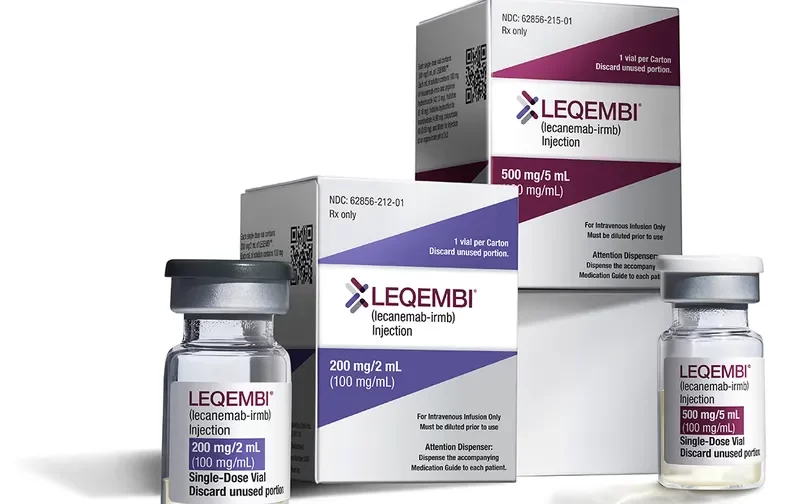FDA Grants Full Approval to Alzheimer’s Drug Leqembi, Signifying a Landmark Achievement in Disease Treatment
U.S. federal health officials have granted full approval to the Alzheimer’s drug Leqembi, marking a major milestone in the treatment of this progressive disease. The approval by the Food and Drug Administration (FDA) signifies that Leqembi, administered through bi-weekly infusions, will now be widely accessible and covered by Medicare, offering hope to millions of Americans affected by Alzheimer’s disease.
To be eligible for coverage, patients must be enrolled in Medicare and diagnosed with mild cognitive impairment or mild Alzheimer’s disease dementia. They must also provide evidence of beta-amyloid plaque presence in the brain, and have access to a physician participating in a qualifying registry, along with an appropriate clinical team and follow-up care, as stated by the Centers for Medicare & Medicaid Services.
Leqembi, developed by Japanese pharmaceutical company Eisai, initially received conditional approval from the FDA in January based on early trial results that indicated its efficacy in clearing the sticky brain plaque associated with Alzheimer’s disease. The treatment is priced at $26,500 per patient annually.
According to the results of a phase three clinical trial, Leqembi demonstrated a 27% reduction in the rate of cognitive decline compared to a placebo after 18 months of treatment. This groundbreaking outcome has offered hope for patients, their families, and healthcare professionals who have long sought ways to slow the progression of Alzheimer’s disease.
The Alzheimer’s Association estimates that in 2023 alone, approximately 6.7 million Americans aged 65 or older are living with Alzheimer’s, a number projected to increase to nearly 13 million by 2050. Moreover, the association emphasizes that Alzheimer’s disease claims more lives than breast cancer and prostate cancer combined, underscoring the urgent need for effective treatments.
Dr. Sharon Cohen, a behavioral neurologist and clinical trial investigator for the Clarity AD study, hailed the FDA’s approval of Leqembi as a significant breakthrough in Alzheimer’s treatment. She explained that while other drugs have shown the ability to clear amyloid plaque in the brain, Leqembi goes a step further by slowing down the disease’s progression, allowing individuals to maintain their functional abilities for a longer duration.
“The disease is not just the end-stage dementia where people can’t do anything. There are people with the disease who have subtle symptoms, who are still functioning well,” said Dr. Cohen. “If you can slow down the disease so that they stay at a functional state longer, that’s a big win.”
Dr. Cohen emphasized that Leqembi is most suitable for patients in the early stages of Alzheimer’s, including those with mild cognitive impairment or mild dementia who are still actively engaged in their communities and daily family life. Individuals experiencing early symptoms of Alzheimer’s disease are encouraged to consult with their doctors to determine if Leqembi is an appropriate treatment option for them.
While Leqembi holds immense promise, Dr. Cohen cautioned that there may be potential risks associated with the treatment. Physicians will need to assess patients’ eligibility for MRI brain scans and routinely monitor them for known side effects. Mild to moderate infusion-related reactions, such as shaking, muscle aches, or headaches, may occur after the initial infusion but are manageable with anti-inflammatory medications. Additionally, the drug’s ability to clear amyloid plaque from the brain may cause amyloid-related imaging abnormalities (ARIA), which can be detected through MRI scans. ARIA typically resolves on its own, but careful monitoring is crucial to detect any potential symptoms and ensure patient safety.
With the FDA’s full approval of Leqembi, a new era in Alzheimer’s treatment has dawned, providing hope to millions of individuals and families affected by the disease. As researchers and healthcare professionals continue to make strides in understanding and combating Alzheimer’s, this groundbreaking approval represents a significant step forward in the battle against this devastating illness.






